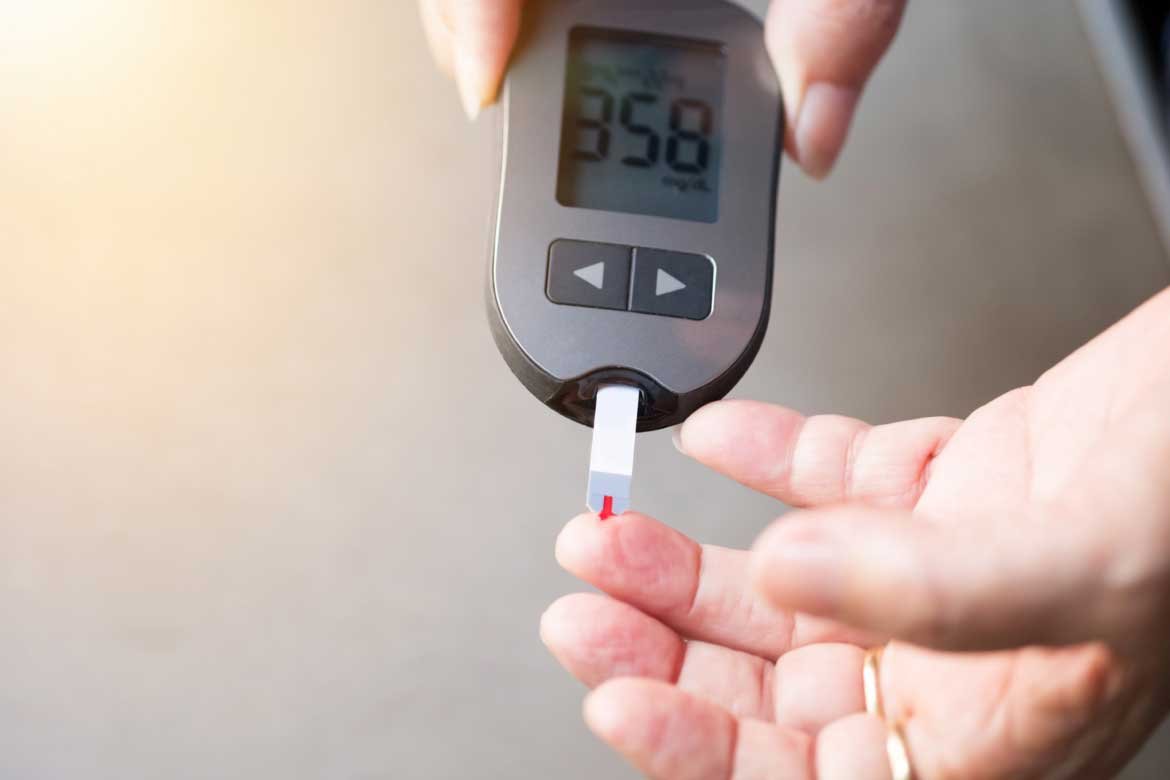High Blood Sugar or Hyperglycemia: Everything You Need to Know to Stay Healthy | Naturactin Health and Wellness
Naturactin Health and Wellness
Our human body contains a certain level of glucose in the blood. The right level of blood sugar gives energy to our body cells and organs. However, when the level of glucose or sugar in our blood increases, it is known as high blood sugar or hyperglycemia. The high blood sugar level can cause several health issues. What you feel when you experience high blood sugar or hyperglycemia, why it happens, and how to take care of it – learn everything to deal with it efficiently.
Signs and Symptoms:
Early signs for hyperglycemia include:
- Trouble concentrating
- Blood sugar more than 180 mg/dL
- Headaches
- Blurred vision
- Fatigue (weak, tired feeling)
- Frequent peeing
- Bloating
- The constant feeling of being thirsty or hungry
- Weight loss
- Increased thirst
- Dry mouth
- Urge to urinate often
- Wounds take a long time to heal
You can also experience the following symptoms with ongoing high blood sugar –
- Slow-healing cuts and sores
- A fruity taste or smell on the breath
- Stomach and intestinal issues, such as chronic constipation or diarrhea
- Shortness of breath
- Worse vision
- Vaginal and skin infections
- A rapid heartbeat
- Damage to the eyes, blood vessels, or kidneys
- Nerve damage causing painful cold or insensitive feet, loss of hair on the lower extremities, or erectile dysfunction
- Vomiting
- Dehydration
- Coma
Types of High Blood Sugar:
High blood sugar or hyperglycemia can affect people with type 1 diabetes (It is a condition in which your immune system destroys insulin-making cells in your pancreas) and type 2 diabetes (It is a lifelong disease that keeps your body from using insulin the way it should) diabetes. There are mainly two kinds of high blood sugar or hyperglycemia. They are –
- Fasting hyperglycemia: When the blood sugar level is higher than 130mg/dL in an empty stomach (after eating anything for more than 8hours), it is known as fasting hyperglycemia.
- Postprandial or after meal hyperglycemia: When the blood sugar level is higher than 180mg/dL after 2 hours of having a meal, it is known as postprandial or after meal hyperglycemia. People without diabetes rarely experience a blood sugar level over 140mg/dL after a meal.
Causes:
There are no definite causes of high blood sugar. However, your blood sugar may rise if you-
- Skip or forget your insulin or oral glucose-lowering medicine
- Eat food containing excessive carbohydrates for the amount of insulin you took, or eat too many carbs in general
- Have an infection
- Are ill
- Are under stress
- Become inactive or exercise less than usual
- Take part in vigorous physical activity, especially when your blood sugar levels are high and insulin levels are low
Risk Factors for high blood sugar:
We have already discussed that there are no definite reasons for high blood sugar and doctors do not know exactly what causes diabetes. However, there are some factors that may increase risks. They are – Type 1 diabetes There might be some genetic or environmental factors that make people more likely to get type 1 diabetes.
According to the National Institute of Diabetes and Digestive and Kidney Diseases (NIDDK), certain genes and some factors like viruses and infections may have an impact. Eating, exercise or other lifestyle choices might not change the outcome. Type 1 diabetes usually begins during childhood or early adulthood. However, anyone at any age can experience this. Type 2 Diabetes: The following risk factors may make developing type 2 diabetes more likely –
- Having certain genes
- Overweight
- Receiving treatment for high blood pressure, or having a blood pressure of 140/90 or higher
- Family history of type 2 diabetes
- Being aged over 45 years
- Lower levels of “good” HDL cholesterol or high levels of triglycerides
How does high blood sugar affect our body?
High blood sugar in our body can lead to complications. If untreated, you can experience
- Urination and thirst: High blood sugar can affect the kidneys and urine. This might lead to frequent urination and increased thirst despite drinking enough liquid.
- Numbness and tingling: You can also feel numbness, tingling, or burning in your hands, legs, and feet due to high blood sugar.
- Drastic weight loss: It can also cause sudden or unexplained weight loss. Since the body cell does not get the glucose they need, they start burning the muscles and fat for the required energy.
The long term complications: Over time, high blood sugar can affect your body organs and lead to severe complications including –
- Damage to the eye and loss of vision
- Nerve problems in the skin, especially the feet, leading to sores, infections, and wound healing problems
- Heart attack or stroke
- Kidney disease or failure
Treatment:
If you have diabetes or if experiencing the early signs and symptoms for high blood sugar, test your blood sugar level and visit a doctor. Hyperglycemia can not be treated but can be controlled. The doctor might recommend the following to keep your blood sugar level under control –
- Drink more water: Water helps to remove excess sugar from the blood through urine, and also keep your body hydrated.
- Do exercise: Regular exercise can help you reduce your blood sugar level. However, you should ask your doctor what exercise is right for your condition because sometimes exercise might worsen the condition.
- Caution: If you have type 1 diabetes with high blood sugar, you should do a urine test to check ketones. If you have ketones, you should Never do exercise. Also with type 2 diabetes, check for ketones. Make sure you are well-hydrated and have no ketones in your urine.
- Change your diet: Changing your eating habits is a must to stay healthy. Consult a dietitian for a proper diet plan for a high blood sugar level.
- Medications: Last but not the least, your doctors will give you certain medications and they will change it from time to time depending on your blood sugar level. Never try to change your medication without an expert’s help.
How to prevent or manage high blood sugar:
Stay conscious, eat healthy food, and change your lifestyle to prevent hyperglycemia. Follow a healthy meal plan, exercise regularly, do a routine check-up, and test your blood sugar level, and live a healthy lifestyle to prevent this condition. You can follow the below tips to live a healthy life without suffering hyperglycemia or high blood sugar–
- Routine check your blood sugar levels as per your doctor’s advice, and take the correct amount of insulin if you have type 1 diabetes
- Talk to your dietitian about your dietary needs and eat exactly what you need. Also, plan your food intake and exercise to balance blood sugar levels.
- Take precautions to avoid infections. You can maintain hygiene and avoid infection through regular hand washing. Infections or other illness, like cold, can trigger a rise in blood pressure
- Don’t get stressed. To minimize stress, you can do exercise, get enough sleep, and perform other stress-reducing activities such as meditation or yoga.

Paul Ambolo
Blog Contributor
For Inquiries feel free to Contact Us
For our Free Health Concern Quiz, visit www.naturactin.net
Visit our store – www.naturactin.shop






Leave a Reply
Want to join the discussion?Feel free to contribute!